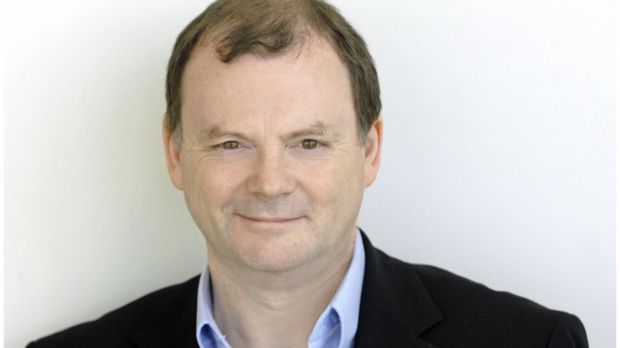
Richard Sambrook to review BBC's social media use
A former director of global news at the BBC is to review how the corporation maintains impartiality on social media.
The BBC has appointed Richard Sambrook, currently director of journalism of Cardiff University, to review online behaviour of programmes and staff.
Prof Sambrook, who worked for BBC News for 30 years, will examine whether impartiality guidelines are being adhered to on platforms like Twitter.
The review was commissioned before this week's Emily Maitlis controversy.
The BBC said: "As part of our ongoing work on impartiality, we're having an internal look at social media use, and some time ago we asked Richard Sambrook to take an independent view on it for us.
"This is in its early stages and we don't have any further details at the moment."
Sambrook will look at how programmes such as Question Time and Newsnight use social media.
Such programmes often share edited clips in isolation on their feeds, without the background or context provided in the full broadcast programme.
The BBC's editorial guidelines state: "Impartiality lies at the heart of public service and is the core of the BBC's commitment to its audiences."
Earlier this week, the BBC said Newsnight's opening monologue, delivered by Emily Maitlis, did not meet impartiality standards.
Maitlis said the country was "shocked" the government could not see that Boris Johnson's aide Dominic Cummings had broken the rules by travelling from London to County Durham during the coronavirus lockdown.
She added the "public mood" was "one of fury, contempt and anguish" and that the programme would consider the implications of the prime minister's "blind loyalty" to his advisor. A clip of her monologue went viral online.
In 2018, Gary Lineker was criticised by fellow sport presenter Jonathan Agnew for expressing his views on Twitter.
"Keep your political views, whatever they are and whatever the subject, to yourself," Agnew said, but Lineker responded by saying he could "tweet what he likes" and would continue to do so.
However, Lineker works for the corporation as a freelancer. As he does not work for BBC News, he is not subject to the same guidelines as journalists.